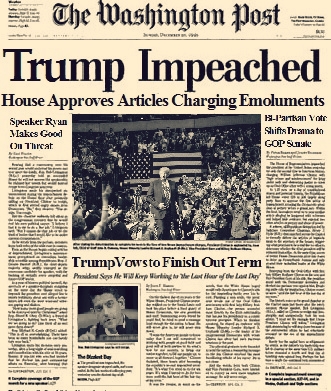Fox and Friends has lowered more American IQs than lead-laden paint, and this morning was no exception.
Brian Kilmeade had the honor of introducing the controversial Priorities USA super PAC ad that attempts to tenuously connect Mitt Romney’s Bain Capital bidness with the death of the wife of a Kansas City steelworker, who definitely was a victim of Bain’s vulture capitalism.
Kilmeade introduced the video clip by calling it the,
Mitt-Romney-killed-my wife-and-gave-her-cancer ad
Now, one expects that sort of thing on Fox, where hysteria has a home and is used to keep the right-wing tribes all fired up for the November offensive, which they hope will produce the pigmented scalp of President Obama.
But Kilmeade’s comment demonstrates exactly why the Priorities USA ad was an ill-conceived venture. First, let’s look at the ad—which as far as I know hasn’t been aired yet—just in case you haven’t seen the entire thing:
As you can see for yourself, the ad did not explicitly claim Romney or Bain “killed” anybody. But it did implicitly link Romney to the unfortunate cancer death of Ilyona Rae Soptic, unfortunately by compressing the timeline involved. Mrs. Soptic died years after her husband lost his Bain-related job and insurance.
Priorities USA honcho Bill Burton defended the ad this way:
The point of this ad is to tell the story of one guy, Joe Soptic, and the impact on his life that happened for years, and to this day, as a result of decisions that Mitt Romney made. This is one of a series of ads in which we talk about the very long lasting impacts that Mitt Romney’s decision had on these communities, on these individuals and their families.
Yeah, except that’s not what we are talking about now. We are not talking about the very real effects that Bain’s bidness model had on folks, their families, and their communities. We are talking about the “Mitt-Romney-killed-my wife-and-gave-her-cancer ad,” an ad that can be easily refuted and easily caricatured as overreach.
In fact, such unseemly overreach is exactly what the other side does—you know, like “Obama wants to destroy America” and other such things—and it is contrary to Obama’s brand, which is exactly why he should himself declare the ad unworthy of this campaign. Indeed, he should declare it as an unfair attack on Romney and completely separate himself from it.
That way, we all can concentrate on things that can be definitely connected to Romney, like this:
Mitt Romney Started Bain Capital With Money From Families Tied To Death Squads
That headline is no joke. Follow the link and find out the details. But given the unnecessary controversy over the “Mitt-Romney-killed-my wife-and-gave-her-cancer ad,” how many folks will simply tune this one out? How many will tune out all of the stuff related to Bain?
 Yet all of the issues surrounding Bain Capital—including Romney’s willingness to do business with oligarchs tied to death squads—reveal something important about who Romney is. And since he hides so much from us, it’s just about all we’ve got to explain him to the undecided.
Yet all of the issues surrounding Bain Capital—including Romney’s willingness to do business with oligarchs tied to death squads—reveal something important about who Romney is. And since he hides so much from us, it’s just about all we’ve got to explain him to the undecided.
And that’s why Democrats shouldn’t screw up by deploying too-clever-by-half campaign commercials that end up making us look as hysterical as Fox and Friends and other Tea Party Republicans.















 ength just to show how dumb (however self-serving they may be) Cory Booker’s original statements were:
ength just to show how dumb (however self-serving they may be) Cory Booker’s original statements were: